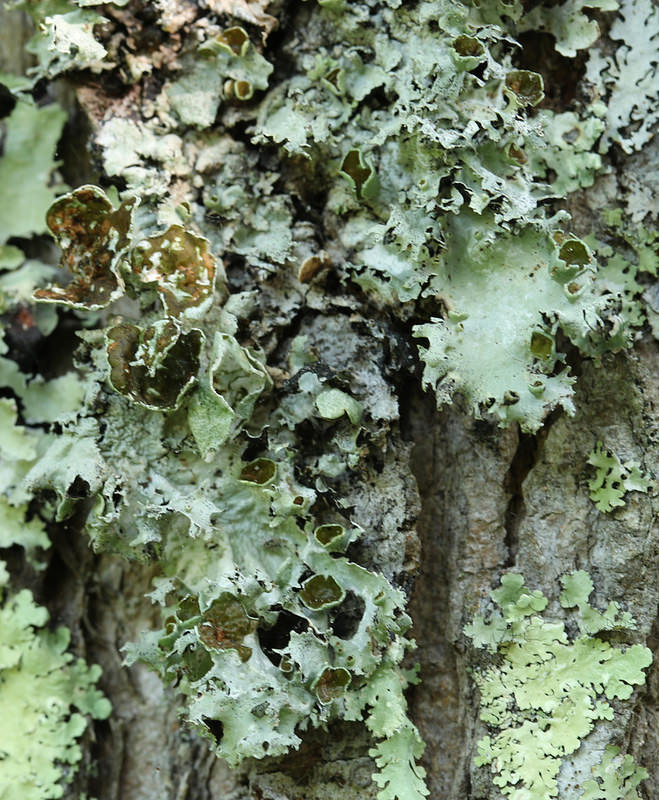Map Snapshot






10 Records
Seasonality Snapshot
Use of media featured on Maryland Biodiversity Project is only permitted with express permission of the photographer.
Unperforated Ruffle Lichen in Worcester Co., Maryland (5/27/2015).
View Record Details
Media by
Jim Stasz.
Source: Wikipedia
| Parmotrema submarginale | |
|---|---|

| |
| Scientific classification | |
| Domain: | Eukaryota |
| Kingdom: | Fungi |
| Division: | Ascomycota |
| Class: | Lecanoromycetes |
| Order: | Lecanorales |
| Family: | Parmeliaceae |
| Genus: | Parmotrema |
| Species: | P. submarginale
|
| Binomial name | |
| Parmotrema submarginale (Michx.) DePriest & B.W.Hale (1998)
| |
| Synonyms[1] | |
| |
Parmotrema submarginale is a species of corticolous (bark-dwelling), foliose lichen in the family Parmeliaceae. It was first formally described as a new species in 1803 by French botanist André Michaux, who called it Lobaria submarginalis. Paula DePriest and Beatrice Hale transferred it to the genus Parmotrema in 1998.[2] It is found in Bolivia, Brazil, Costa Rica, Thailand, and the United States.[3]
Paragyalideopsis floridae is a lichenicolous fungus that has been documented infecting Parmotrema submarginale in Florida.[4]
See also
[edit]References
[edit]- ^ "Record Details: Parmotrema submarginale (Michx.) DePriest & B.W. Hale, Mycotaxon 67: 208 (1998)". Species Fungorum. Retrieved 16 January 2024.
- ^ DePriest, Paula; Hale, Beatrice (1998). "A validated species and a new combination in Parmotrema (Ascomycotina: Parmeliaceae)". Mycotaxon. 67: 207–209.
- ^ Flakus, Adam; Sipman, Harrie J.M.; Rodriguez Flakus, Pamela; Schiefelbein, Ulf; Jabłońska, Agnieszka; Kukwa, Martin; Oset, Magdalena (2014). "Contribution to the Knowledge of the Lichen Biota of Bolivia. 6". Polish Botanical Journal. 59 (1): 63–83. doi:10.2478/pbj-2014-0020.
- ^ Etayo, Javier; Diederich, Paul (2001). "Gyalideopsis floridae, sp. nov. a new lichenicolous lichen from Florida (Gomphillaceae, Ascomycetes)" (PDF). The Bryologist. 104 (1): 130–133. doi:10.1639/0007-2745(2001)104[0130:GFSNAN]2.0.CO;2.
